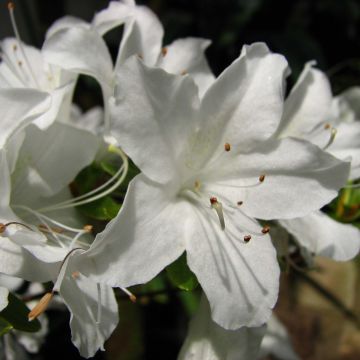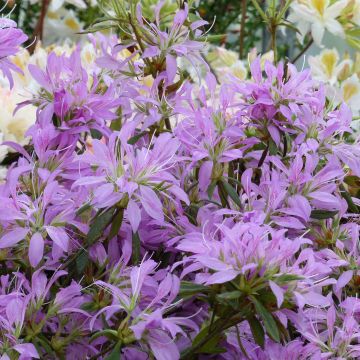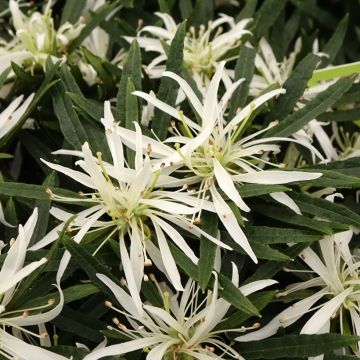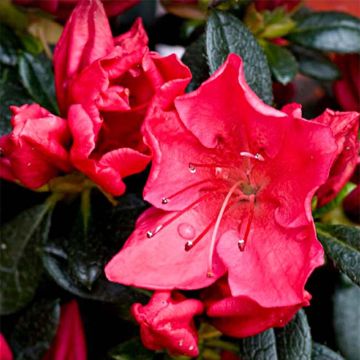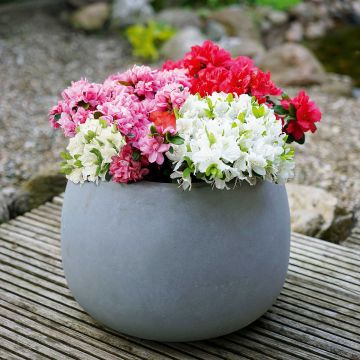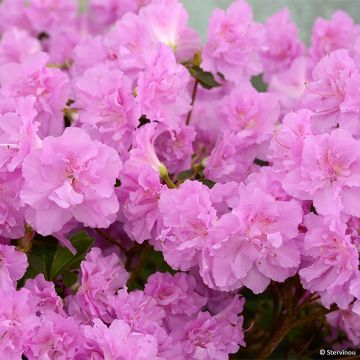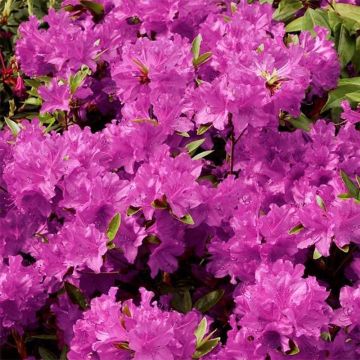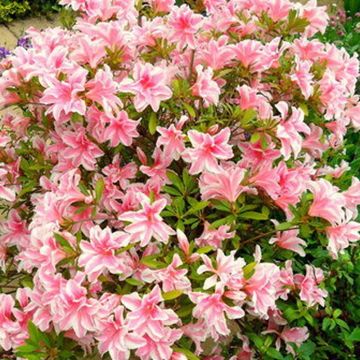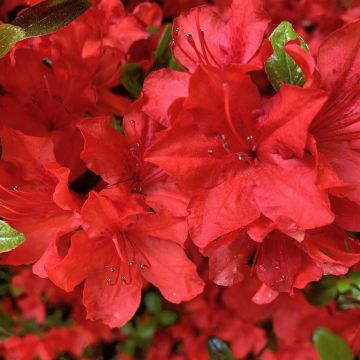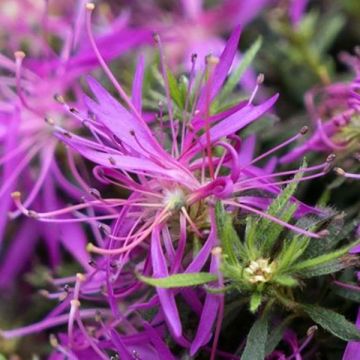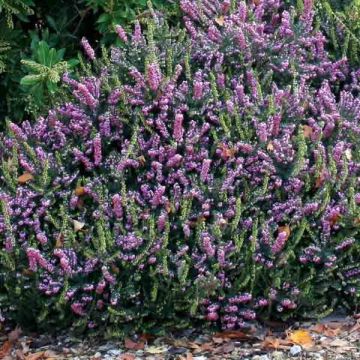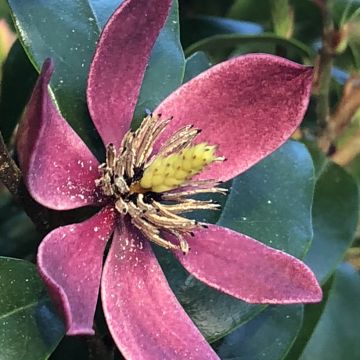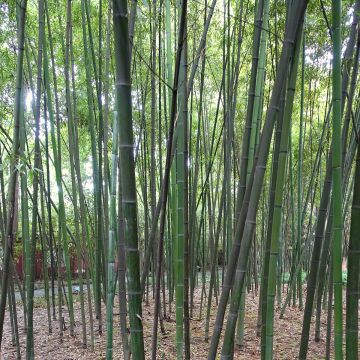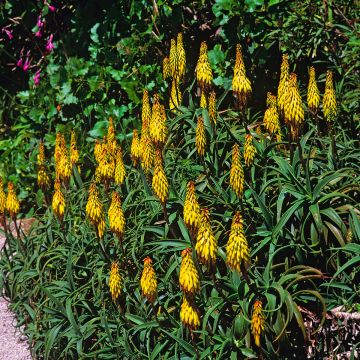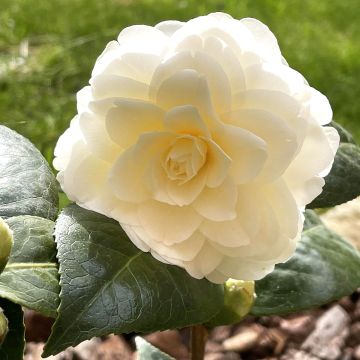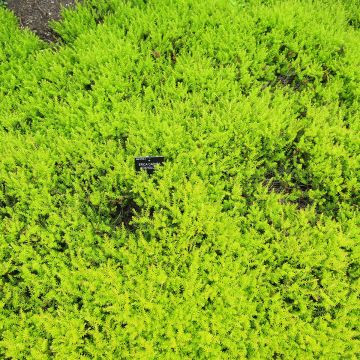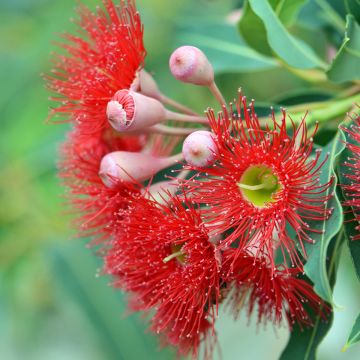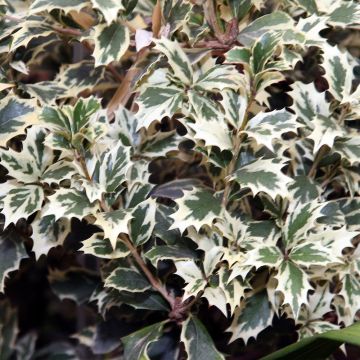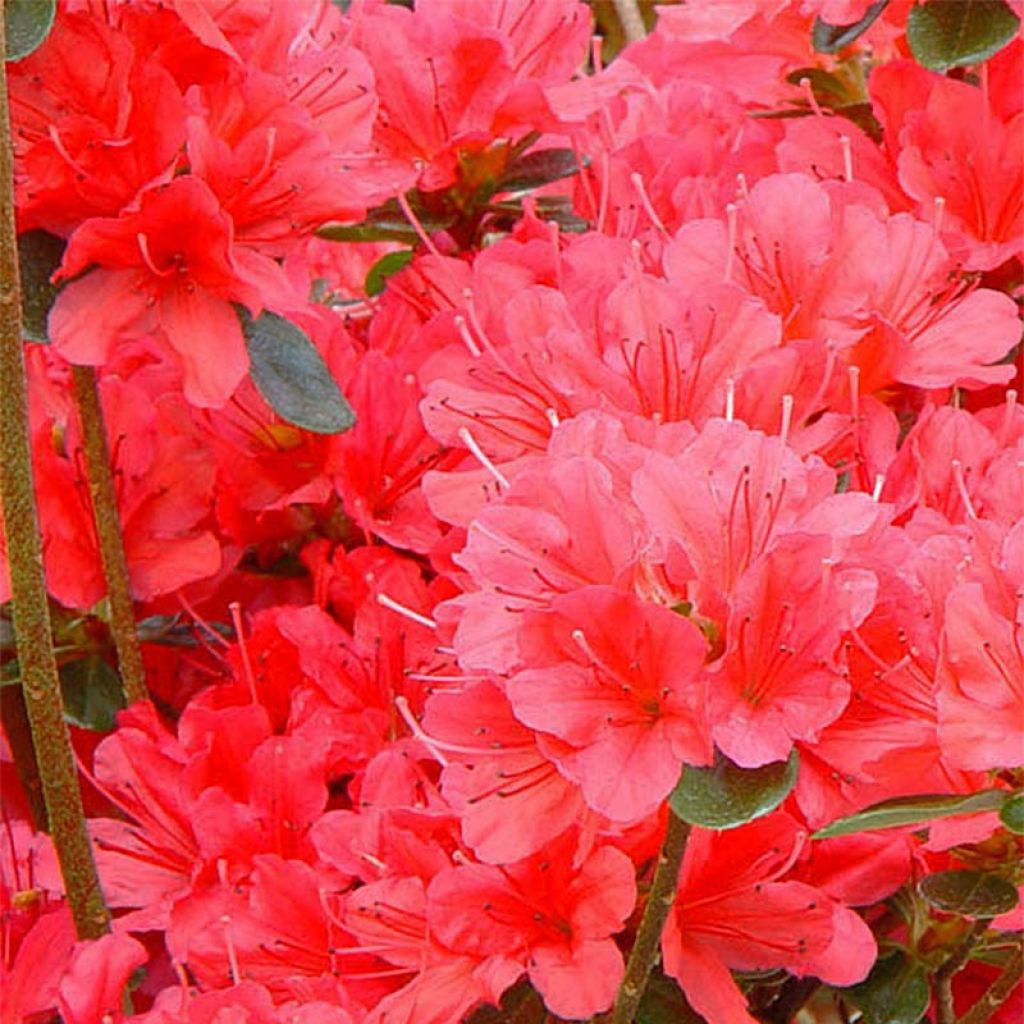

Azalea japonica Mothers Day
Azalea japonica Mothers Day
Rhododendron (Azalea) japonica Moederdag
Japanese Azalea, Kurume Azalea
Special offer!
Receive a €20 voucher for any order over €90 (excluding delivery costs, credit notes, and plastic-free options)!
1- Add your favorite plants to your cart.
2- Once you have reached €90, confirm your order (you can even choose the delivery date!).
3- As soon as your order is shipped, you will receive an email containing your voucher code, valid for 3 months (90 days).
Your voucher is unique and can only be used once, for any order with a minimum value of €20, excluding delivery costs.
Can be combined with other current offers, non-divisible and non-refundable.
Home or relay delivery (depending on size and destination)
Schedule delivery date,
and select date in basket
This plant carries a 24 months recovery warranty
More information
We guarantee the quality of our plants for a full growing cycle, and will replace at our expense any plant that fails to recover under normal climatic and planting conditions.

Would this plant suit my garden?
Set up your Plantfit profile →
Description
The 'Mother's Day' Japanese Azalea, also known as 'Moederdag', covered with small, beautiful, light satiny red flowers in May, really lives up to its name. This dense, low, spreading shrub, is distinctive because of its small clusters of remarkable, pinky-red flowers accentuated by an elegant, glossy, deep green foliage, which lasts through the winter, if it is not excessively cold. Very resistant to sharp frosts, this variety is a great choice and a perfect gift for Mother's Day. It can be grown in an ericaceous bed in a small Japanese-style garden or in a carefully chosen pot on the terrace.
The Rhododendron (x) obtusum 'Moederdag', commonly known as Japanese Azalea, is a plant from the large Ericaceae family, like the heathers. It is a small and very hardy Shrub that thrives in partial shade and lime-free soil that remains moist throughout the year. This hybrid Azalea is the result of a cross between the 'Professeur Wolters' and 'Hinodegiri' varieties. With an Award of Garden Merit from the Royal Horticultural Society, England, this Azalea is highly valued for its excellent hardiness (-20°C (-4 °F)), easy cultivation, and vibrant flowers.
Vigorous but low and compact, 'Moederdag' forms a well-branched dome around 60 cm in height and 90 cm (35.4 in) in spread by the age of 10, depending on growing conditions. It generally flowers for 2 to 3 weeks in late May, sometimes earlier depending on the climate. Clusters of 2 to 3 funnel-shaped flowers, about 5 cm (2 in) wide, appear at the tips of the branches. Some are single, while others are semi-double, meaning they have a few extra petals in the centre. Somewhere between red and pink in colour, they have discreet, dark red flecks in the centre of the corolla and long red stamens. The foliage of this variety is generally evergreen. The small, glossy, elongated oval leaves are bright green in summer, turning bronze in winter with the cold. This slow-growing, little ericaceous shrub thrives in moist, humus-rich, aerated soil that is acidic.
Japanese Azaleas grace ericaceous beds all year round with their semi-evergreen foliage, and their charming and unusual blooms brighten up gardens in spring. Planted en masse along a path or at the front of an ericaceous bed, this 'Moederdag' variety will create a striking flush of red in spring. Plant it in a shady rockery, at the edge of a bed or in a container with Pieris, Kalmia, Heather, Chinese Azalea, Rhododendron, dwarf bamboo, Japanese grass Hakonechloa macra and Japanese Maples. Japanese Azaleas are sometimes grown in containers, but they can also be trained into Bonsai by specialists, making very fine specimens to show off in a Zen or Japanese-style setting.
Report an error about the product description
Azalea japonica Mothers Day in pictures




Plant habit
Flowering
Foliage
Botanical data
Rhododendron (Azalea)
japonica
Moederdag
Ericaceae
Japanese Azalea, Kurume Azalea
Cultivar or hybrid
Other Japanese Azalea
View all →Planting and care
Plant the Japanese Azalea Mother's Day ('Moederdag') in a semi-shaded or shaded position, protected from cold, drying winds, in light, moist, humus-rich, acid soil. Like all plants in the Ericaceous family, it does not tolerate calcareous soils or heavy soils waterlogged in winter. Dig a hole three times larger than the pot. Soak the root ball in lime-free water and plant it level with the surface of the soil, in a mixture of 1/4 coir, leaf mould, horticultural grit or perlite, and loam. Water generously and keep the soil moist in summer. Azaleas and Rhododendrons have a shallow root system and, as a result, they are sensitive to long periods of drought. That is why it is recommended to enrich the soil with humus, and water copiously during dry periods. Moreover, this root system is not very strong, which is why it is essential to lighten heavy soils with free-draining materials (horticultural grit, perlite, clay pellets) when planting. Apply a mulch of shredded pine bark at the base of the shrub every spring to maintain soil moisture and acidic pH. Maintenance consists of removing faded flowers in summer and clearing out dead branches. Yellowing of the leaves (chlorosis) in Rhododendron indicates poor iron uptake from the soil and can cause the premature death of the plant. While lime is often the cause, poorly drained soil or a root ball that is too deep can also explain the phenomenon.
Planting period
Intended location
Care
This item has not been reviewed yet - be the first to leave a review about it.
Similar products
Haven't found what you were looking for?
Hardiness is the lowest winter temperature a plant can endure without suffering serious damage or even dying. However, hardiness is affected by location (a sheltered area, such as a patio), protection (winter cover) and soil type (hardiness is improved by well-drained soil).

Photo Sharing Terms & Conditions
In order to encourage gardeners to interact and share their experiences, Promesse de fleurs offers various media enabling content to be uploaded onto its Site - in particular via the ‘Photo sharing’ module.
The User agrees to refrain from:
- Posting any content that is illegal, prejudicial, insulting, racist, inciteful to hatred, revisionist, contrary to public decency, that infringes on privacy or on the privacy rights of third parties, in particular the publicity rights of persons and goods, intellectual property rights, or the right to privacy.
- Submitting content on behalf of a third party;
- Impersonate the identity of a third party and/or publish any personal information about a third party;
In general, the User undertakes to refrain from any unethical behaviour.
All Content (in particular text, comments, files, images, photos, videos, creative works, etc.), which may be subject to property or intellectual property rights, image or other private rights, shall remain the property of the User, subject to the limited rights granted by the terms of the licence granted by Promesse de fleurs as stated below. Users are at liberty to publish or not to publish such Content on the Site, notably via the ‘Photo Sharing’ facility, and accept that this Content shall be made public and freely accessible, notably on the Internet.
Users further acknowledge, undertake to have ,and guarantee that they hold all necessary rights and permissions to publish such material on the Site, in particular with regard to the legislation in force pertaining to any privacy, property, intellectual property, image, or contractual rights, or rights of any other nature. By publishing such Content on the Site, Users acknowledge accepting full liability as publishers of the Content within the meaning of the law, and grant Promesse de fleurs, free of charge, an inclusive, worldwide licence for the said Content for the entire duration of its publication, including all reproduction, representation, up/downloading, displaying, performing, transmission, and storage rights.
Users also grant permission for their name to be linked to the Content and accept that this link may not always be made available.
By engaging in posting material, Users consent to their Content becoming automatically accessible on the Internet, in particular on other sites and/or blogs and/or web pages of the Promesse de fleurs site, including in particular social pages and the Promesse de fleurs catalogue.
Users may secure the removal of entrusted content free of charge by issuing a simple request via our contact form.
The flowering period indicated on our website applies to countries and regions located in USDA zone 8 (France, the United Kingdom, Ireland, the Netherlands, etc.)
It will vary according to where you live:
- In zones 9 to 10 (Italy, Spain, Greece, etc.), flowering will occur about 2 to 4 weeks earlier.
- In zones 6 to 7 (Germany, Poland, Slovenia, and lower mountainous regions), flowering will be delayed by 2 to 3 weeks.
- In zone 5 (Central Europe, Scandinavia), blooming will be delayed by 3 to 5 weeks.
In temperate climates, pruning of spring-flowering shrubs (forsythia, spireas, etc.) should be done just after flowering.
Pruning of summer-flowering shrubs (Indian Lilac, Perovskia, etc.) can be done in winter or spring.
In cold regions as well as with frost-sensitive plants, avoid pruning too early when severe frosts may still occur.
The planting period indicated on our website applies to countries and regions located in USDA zone 8 (France, United Kingdom, Ireland, Netherlands).
It will vary according to where you live:
- In Mediterranean zones (Marseille, Madrid, Milan, etc.), autumn and winter are the best planting periods.
- In continental zones (Strasbourg, Munich, Vienna, etc.), delay planting by 2 to 3 weeks in spring and bring it forward by 2 to 4 weeks in autumn.
- In mountainous regions (the Alps, Pyrenees, Carpathians, etc.), it is best to plant in late spring (May-June) or late summer (August-September).
The harvesting period indicated on our website applies to countries and regions in USDA zone 8 (France, England, Ireland, the Netherlands).
In colder areas (Scandinavia, Poland, Austria...) fruit and vegetable harvests are likely to be delayed by 3-4 weeks.
In warmer areas (Italy, Spain, Greece, etc.), harvesting will probably take place earlier, depending on weather conditions.
The sowing periods indicated on our website apply to countries and regions within USDA Zone 8 (France, UK, Ireland, Netherlands).
In colder areas (Scandinavia, Poland, Austria...), delay any outdoor sowing by 3-4 weeks, or sow under glass.
In warmer climes (Italy, Spain, Greece, etc.), bring outdoor sowing forward by a few weeks.






























